Global Alliance - Cities 4 Children Publications
Making cities safer for children: Addressing unintentional injuries
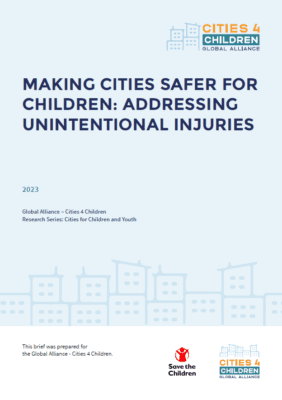
, June 20, 2023, 2 min
In this brief, we explore the extent of the problem for poor urban children and why the scarcity of reliable data means that the incidence of injury is under recognised. We discuss the types and patterns of injury and the hazards and risk factors for girls and boys of different ages in different settings. We consider implications for action, including the need for greater awareness that most injuries are preventable, and why effective responses must be locally relevant, using local situation analyses and risk assessments involving local residents. Finally, we explore the valuable role of child-focused NGOs in raising awareness of the issue at all levels and encouraging processes to address it.
Improving Road Safety for Urban Children
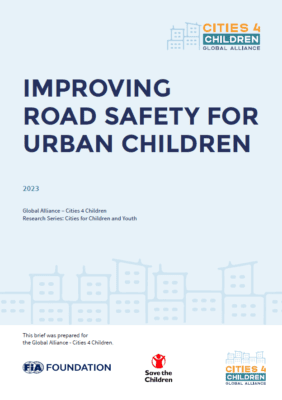
, May 15, 2023, 2 min
This brief provides a summary of key evidence on preventing road traffic injuries among children and effective evidence-based interventions. While evidence is most extensive for high-income settings, there is an increasing body of evidence on the cost-effectiveness of interventions in low- and middle-income settings. The brief includes global policy commitments and resources for more information and practical support.
Cities for and with Children and Youth – Ideas to Inspire Action
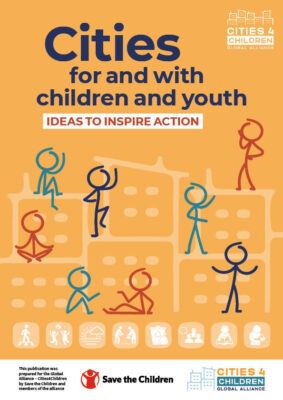
, June 26, 2022, 2 min
Many people and organisations have asked us: what can we, ourselves, do to make cities better for children and young people? This publication responds to this question by offering some ideas for local and low‑cost action.
Cities for Children: An Overview of Relevant Issues
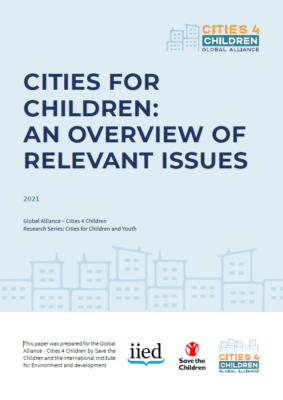
, June 23, 2021, 2 min
This briefing provides an introduction to the status of children in urban areas, focusing on the most marginalised and deprived children and the range of issues they face, including the impacts of migration, poverty, hunger, conflict, disease and vulnerability to disaster.
Urban Children and Malnutrition
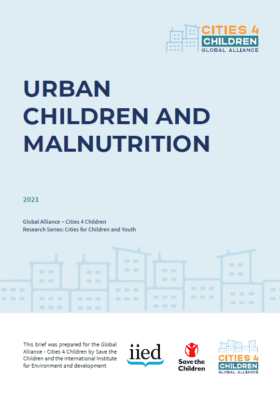
, June 21, 2021, 3 min
This evidence into action brief summarises the state of research on the topic of urban children and malnutrition, and proposes ideas for action.
COVID-19 and Children in Urban Contexts
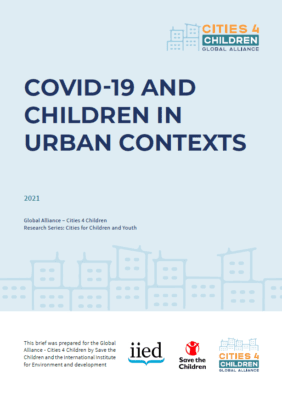
, May 26, 2021, 3 min
This evidence into action brief summarises the state of research on the topic of urban children and COVID-19, and proposes ideas for action. Across the world, public and political attention is firmly focused on recovery from COVID-19. But it is vital that we build back better.
Urban Air Pollution and Children in Low- and Middle- Income Countries
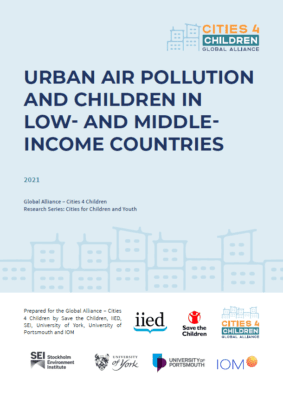
, May 24, 2021, 3 min
This evidence into action brief summarises the state of research on the topic of urban air pollution in low- and middle-income countries and its impacts on children, and proposes ideas for action.
Children and Local Governance in Urban Areas
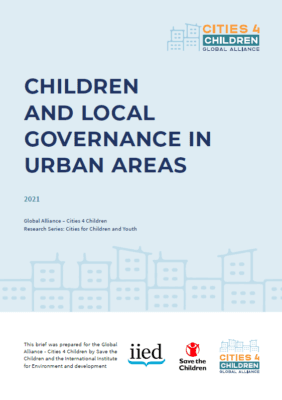
, April 30, 2021, 2 min
This brief considers the role of local government in poor urban areas, the resources that support or constrain this role, and the critical involvement of civil society, NGOs and communities. Giving examples from practice, it discusses the active contribution of children and young people to effective local governance processes that also address their priorities.
WASH: Improving Provision for Urban Children
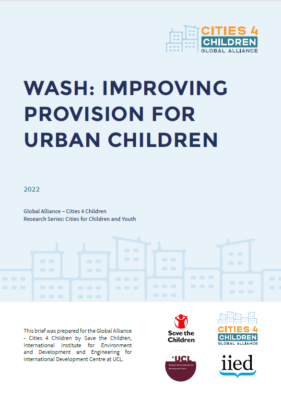
, April 28, 2021, 2 min
This briefing highlights the problems related to urban WASH access and presents research findings on the impact on children of different ages, especially young children and adolescent girls. This briefing also includes guidance for NGOs for supporting improved access to WASH and hence living conditions for children in urban contexts.
